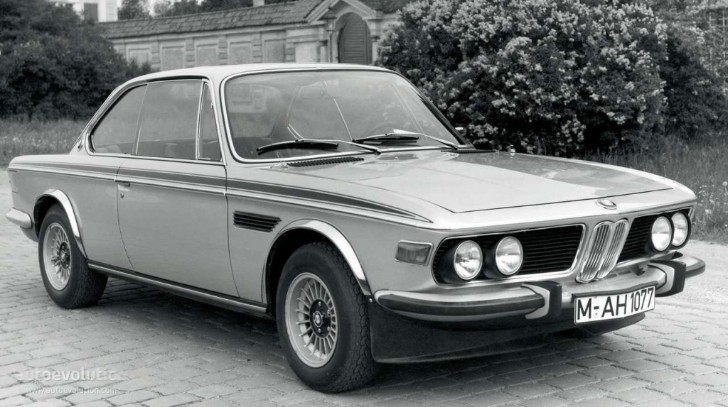Following yesterday's story about the 2000CS today we're talking about the car that replaced it and it's variants. In 1968 the 2000C and 2000CS were replaced by the 2800CS, the first of the E9 Coupes.
This new model had a longer wheelbase and body, allowing the engineers to install a bigger engine under the bonnet. That meant that the old 2000cc engine could be replaced with a more powerful, larger one. The choice was easy. They went for new straight-six engines that became BMW's trademark over time.
The engine fitted inside the 2800CS was and M30 with a total capacity of 2,788cc and was also used on the E3 Sedan. This one produced 170 HP at 6,000 RPM.
However, the 2800CS was build for only 3 years being replaced in 1971 by the 3.0CS and 3.0CSi in 1971. These cars had even bigger engines with displacements of 2,986 cc, twin carburetors plus 180 HP for the 3.0CS and 200 HP for the 3.0CSi, which had Bosch D-Jetronic fuel injection.
That was not the most powerful 3.0CS ever build though. In May 1972 BMW released yet another iconic car: the 3.0CSL. This one was designed specifically for the European Touring Car Championship and was lighter then the standard ones, hence the "L" in its nomenclature.
The engine was slightly bigger, having initially 3,003cc and later on 3,153cc thus allowing the car to participate in the 3-liter category. This was a proper racing car and had the looks for it. The aerodynamic improvements made it look extremely angry and the car got the nickname "Batmobile" because of its rear wings that were illegal on German roads.
The 3.0CSL went on to win the European Touring Car Championship in every year between 1975 and 1979, making it one of the most prolific rally cars BMW ever made.
The engine fitted inside the 2800CS was and M30 with a total capacity of 2,788cc and was also used on the E3 Sedan. This one produced 170 HP at 6,000 RPM.
However, the 2800CS was build for only 3 years being replaced in 1971 by the 3.0CS and 3.0CSi in 1971. These cars had even bigger engines with displacements of 2,986 cc, twin carburetors plus 180 HP for the 3.0CS and 200 HP for the 3.0CSi, which had Bosch D-Jetronic fuel injection.
That was not the most powerful 3.0CS ever build though. In May 1972 BMW released yet another iconic car: the 3.0CSL. This one was designed specifically for the European Touring Car Championship and was lighter then the standard ones, hence the "L" in its nomenclature.
The engine was slightly bigger, having initially 3,003cc and later on 3,153cc thus allowing the car to participate in the 3-liter category. This was a proper racing car and had the looks for it. The aerodynamic improvements made it look extremely angry and the car got the nickname "Batmobile" because of its rear wings that were illegal on German roads.
The 3.0CSL went on to win the European Touring Car Championship in every year between 1975 and 1979, making it one of the most prolific rally cars BMW ever made.




